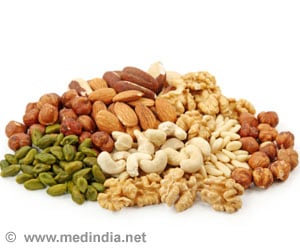Discover the top 10 reasons why couscous is your go-to summer food for health and vitality.
- Couscous offers a nutrient-rich composition, providing essential carbohydrates, proteins, fibers, vitamins, and minerals crucial for summer vitality
- Its quick and easy preparation makes couscous an ideal option for busy summer schedules, offering convenience without compromising on nutrition
- Couscous supports hydration, digestive health, and heart health, making it a versatile and beneficial addition to summer meals
Comparative effects of couscous and pasta on glycemia in normal subjects and type I diabetics
Go to source).
What is Couscous?
Couscous is a traditional North African dish made from small granules of semolina wheat. It has been a staple in the cuisines of countries like Morocco, Algeria, Tunisia, and Libya for centuries. Despite its rice-like appearance, couscous is actually a type of pasta. It is produced by rolling moistened semolina wheat flour into small pellets, then drying them to create the characteristic tiny grains.Couscous is renowned for its versatility, mild flavor, and ability to absorb the flavors of other ingredients it is cooked with. It can be served as a side dish, mixed into salads, or used as a base for stews and tagines. Couscous comes in various forms, including instant couscous, which requires minimal cooking time, and larger-grain varieties like Moroccan couscous, which may need longer cooking. Its ease of preparation and adaptability have contributed to its popularity not only in North Africa but also worldwide as a nutritious and convenient food option.
Top 10 Benefits of Eating Couscous
1. Nutrient-Rich Composition:Couscous is made from semolina wheat, which packs a punch of essential nutrients. It is rich in carbohydrates, providing a quick energy boost for those active summer days. Additionally, it contains protein, fiber, vitamins, and minerals, including B vitamins, iron, and magnesium.
2. Quick and Easy Preparation:
In the midst of summer activities, convenience is key. Couscous requires minimal preparation time, making it an ideal choice for busy schedules. Simply pour boiling water over couscous, let it sit for a few minutes, and fluff with a fork. Voila! A nutritious side dish or base for a meal is ready in no time.
3. Light and Refreshing:
During sweltering summer days, heavy meals can feel burdensome. Couscous offers a light and refreshing alternative. Its fluffy texture and mild flavor pair well with a variety of seasonal vegetables, herbs, and dressings, creating satisfying yet light meals that won’t weigh you down.
4. Versatile Culinary Canvas:
One of couscous’ greatest strengths is its versatility. It serves as a blank canvas for culinary creativity, allowing you to experiment with different flavor combinations and ingredients. From Mediterranean-inspired salads to Moroccan tagines, the possibilities are endless.
For those conscious of their waistlines, couscous can be a valuable ally. Its high fiber content promotes satiety, keeping hunger pangs at bay and preventing overeating. Additionally, its relatively low-calorie density makes it a filling yet waist-friendly option for summer meals.
6. Hydration Assistance:
Staying hydrated is crucial during the hot summer months. Couscous contributes to hydration efforts as it absorbs water during cooking, helping to keep you hydrated while enjoying your meal. Pair it with water-rich vegetables and fruits for an extra hydrating boost.
Fiber-rich foods like couscous promote digestive health by supporting regular bowel movements and feeding beneficial gut bacteria. Incorporating couscous into your summer diet can help alleviate digestive discomfort and keep your gut microbiota happy and healthy.
8. Provides Essential Minerals:
Couscous is a notable source of several essential minerals, including iron and magnesium. Iron is essential for oxygen transport in the body, while magnesium supports nerve function, muscle health, and bone strength. Enjoying couscous regularly can help maintain optimal levels of these vital minerals.
9. Promotes Heart Health:
Maintaining heart health is paramount, especially during the summer when outdoor activities abound. Couscous contributes to heart health thanks to its low saturated fat content and high fiber content. A diet rich in fiber has been linked to lower cholesterol levels and reduced risk of heart disease.
10. Satisfies Cravings Without Sacrificing Nutrition:
Cravings for comfort foods often persist, even in the heat of summer. Couscous offers a satisfying solution by providing the comfort and familiarity of grains without sacrificing nutrition. Whether enjoyed as a side dish, salad, or main course, couscous satisfies cravings while nourishing the body.
To summarize, incorporating couscous into your summer diet offers a myriad of health benefits, ranging from nutrient-rich composition to digestive support and hydration assistance. Its versatility and convenience make it a valuable addition to any summer meal repertoire. Embrace the flavors and textures of couscous this summer and savor the benefits it brings to your health and well-being.
Reference:
- Comparative effects of couscous and pasta on glycemia in normal subjects and type I diabetics - (https://pubmed.ncbi.nlm.nih.gov/2332095/)
Source-Medindia











